By Adrian Kranjčević
International Conference “Enlargement of the European Union from Sofia to London and beyond: Results and Perspectives for the Western Balkan Countries”, Novi Sad, June 27th 2018.
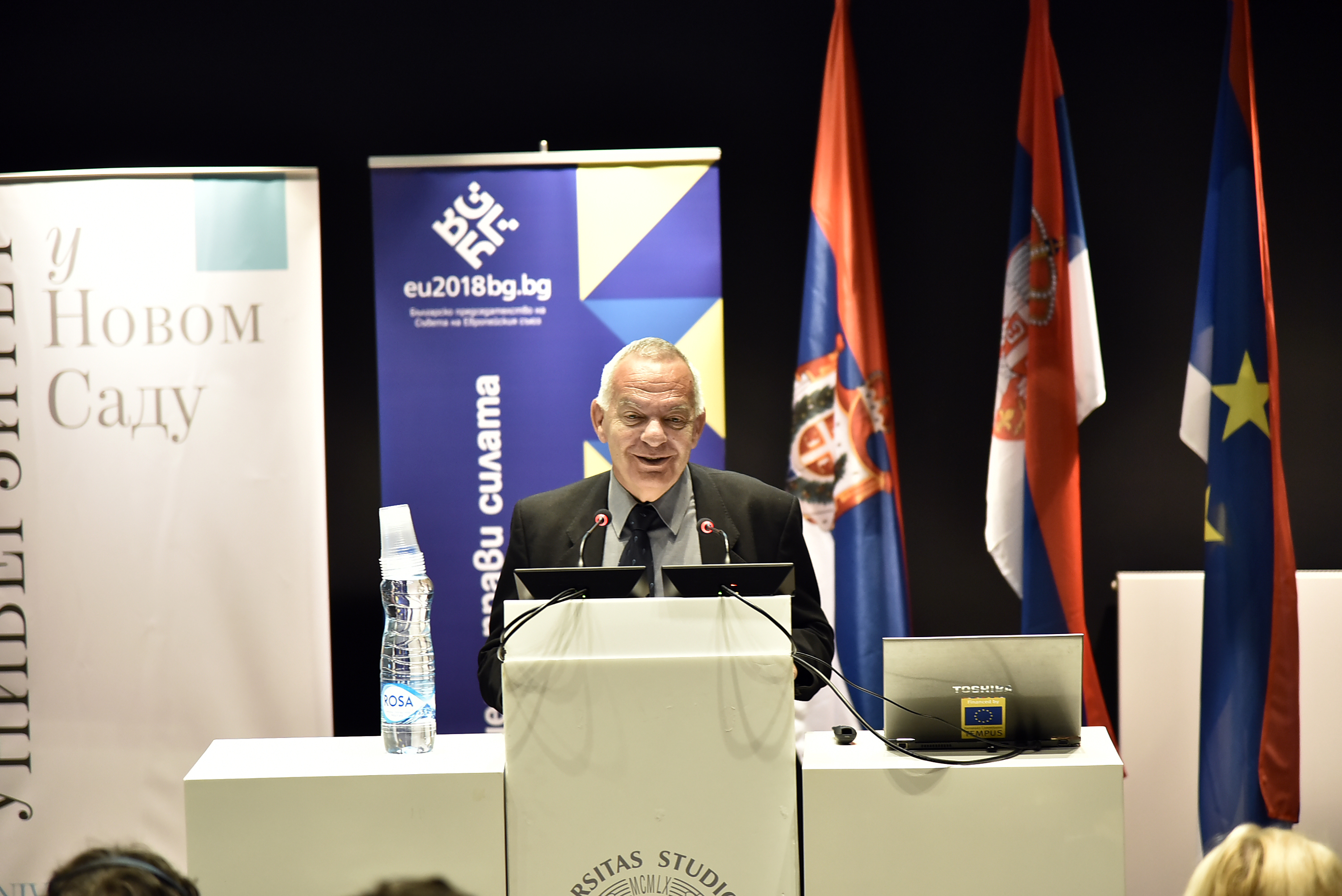
United in Diversity – A Vision for the Future
“We all see the visible. It is improtant to close your eye’s and try to see invisible. When we achieve this we will be able to do things that seems to be impossible”
Federico Mayor Saragosa, former deputy Director general UNESCO
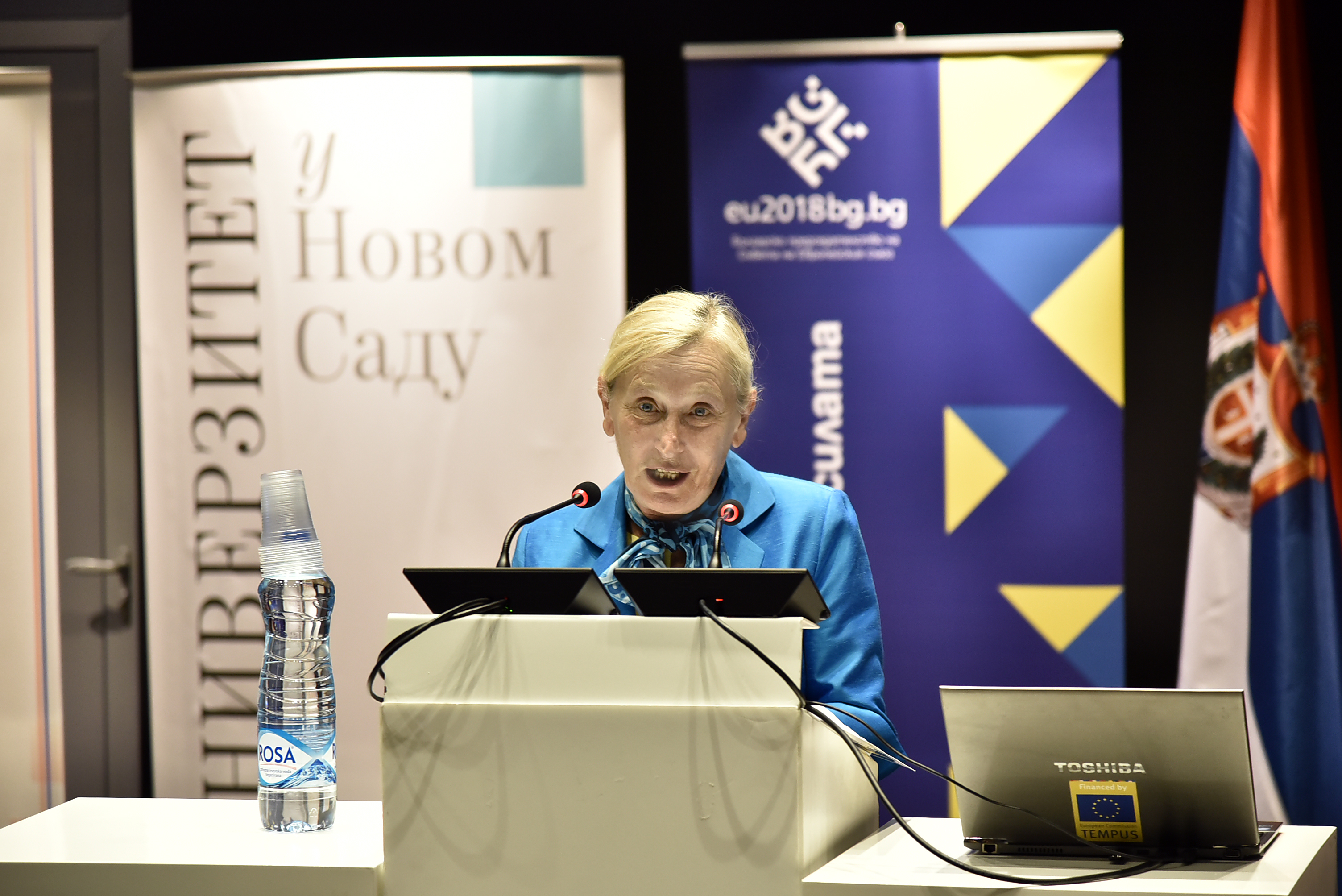
The Ministry of Foreign Affairs of the Republic of Bulgaria, the Embassy of the Republic of Bulgaria in Belgrade, the Head of the Council of the European Union – the Republic of Bulgaria, the Center for Regionalism, the Center for Migrant Studies and the Konrad Adenauer Foundation, organized and held a one-day conference in the ceremonial hall in University of Novi Sad on June 27th 2018. International experts, politicians, diplomats, representatives of civil society, government and non-government sectors and funds expressed their views on important issues concerning the current developments in the internal and external policies of the European Union itself, the migrant crisis , as well as the current position of the countries of the Western Balkans on the path to integration into the European Union during, or at the end of the Presidency of the Republic of Bulgaria, to the Council of the European Union. The conference was held with the idea that representatives, after the six-month mandate of the Republic of Bulgaria as the Chairman of the Council of the European Union, presents the achievements of the goals set on the beginning, focusing on integration of Western Balkan countires in EU. The new meeting will be held in London in early July and will be an opportunity for leaders of the Western Balkan countries to meet with leaders of key EU countries in order to see what are the realistic expectations in this process.

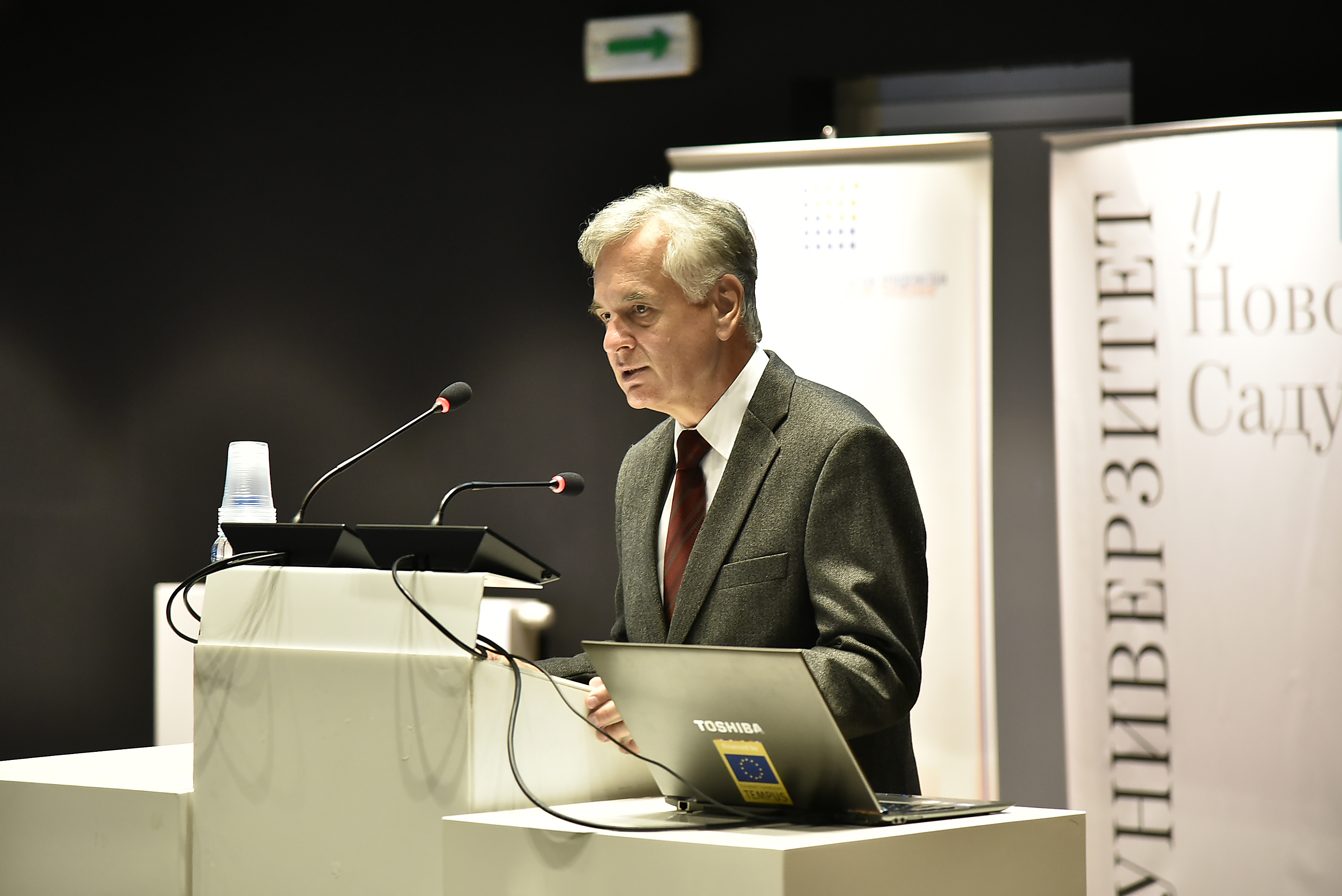
The conference was attended, among others, by Rector of the University of Novi Sad Mr. Dušan Nikolić and Mira Radenović, a member of the City Council for Urban Planning and Environmental Protection, who greeted the participants on behalf of the city of Novi Sad, saying:
“It is easy to speak about European values in Novi Sad, because those heritage in this region have always been. In support of this, there are two prestigious European titles won by the City of Novi Sad in a very short period of time. These are the “European Youth Capital of Europe 2019” and “European Capital of Culture 2021″, preceded by the studious work of experts who were directly involved in the application process, as well as all citizens of Novi Sad. It is very similar in the EU integration process. The path to Serbia’s accession to the European Union is a complex process, and the ultimate goal is the systematic regulation of administration, legislation, and economic stability of the state on a long-term basis. Serbia is making great efforts to meet the criteria set before it, and the best indicator is that negotiation chapters are on the right path. Maintaining conferences like this and public discussions contributes to the quality of further negotiations, and therefore to the future progress of our state, and I think that we need more events like this one.”
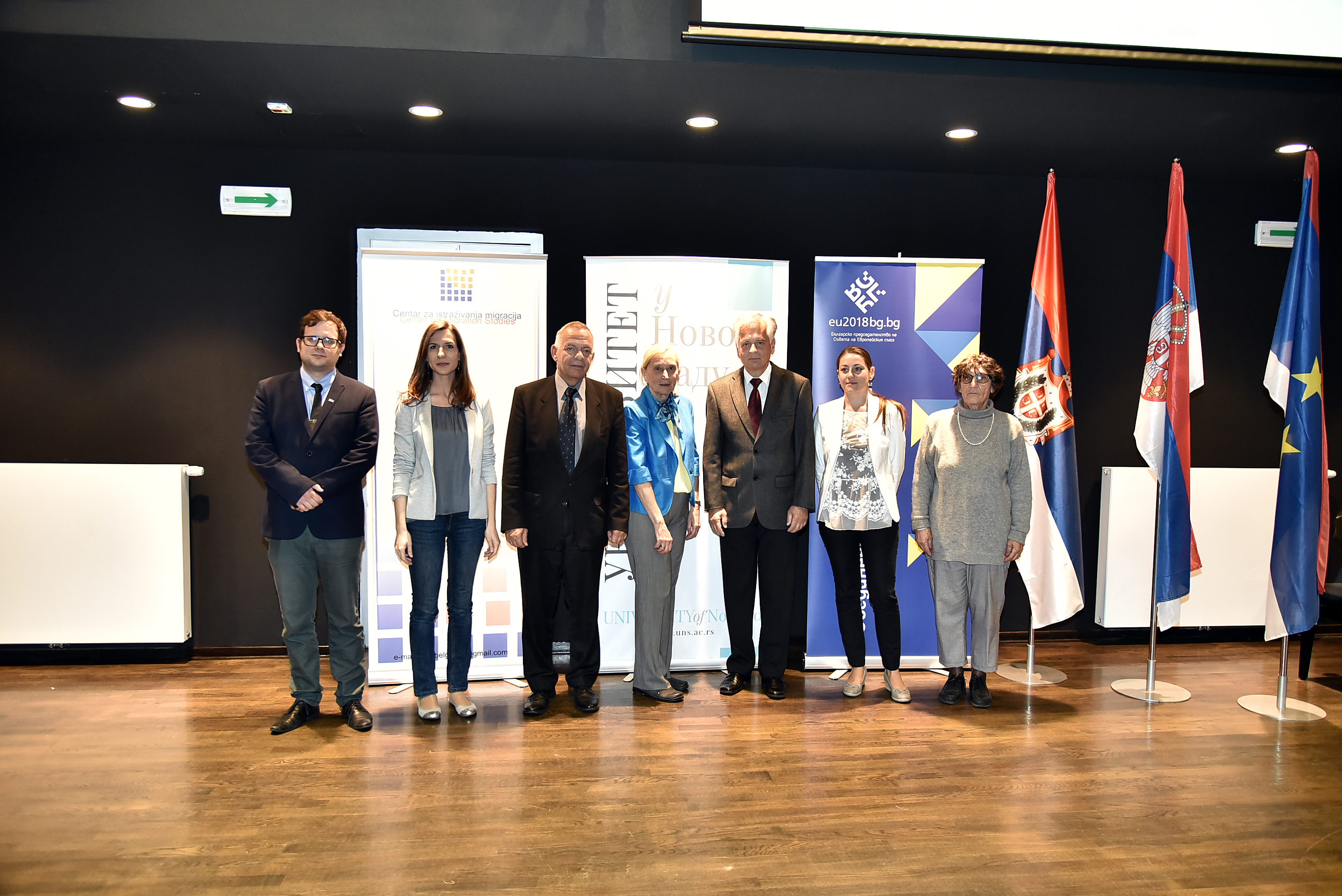
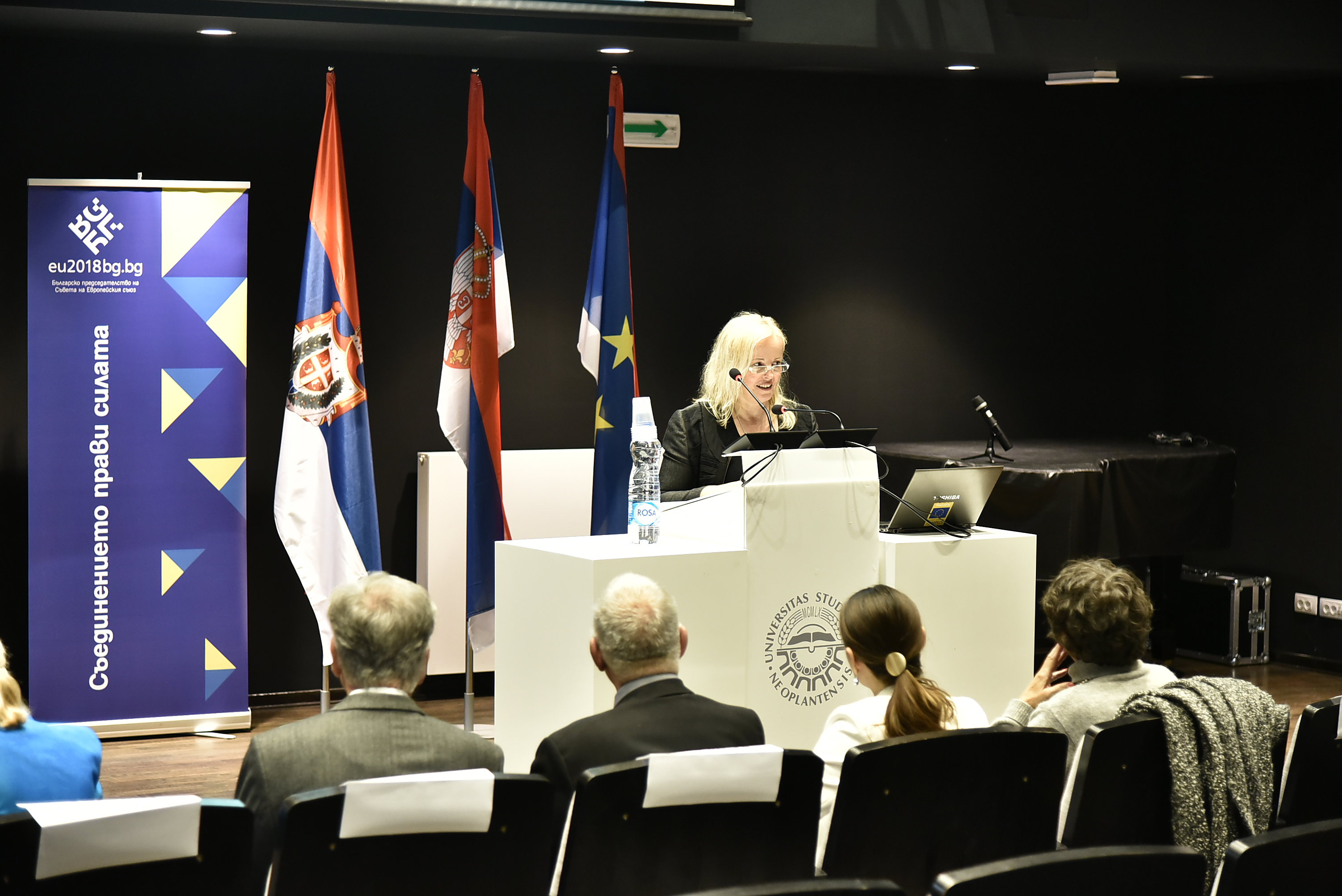
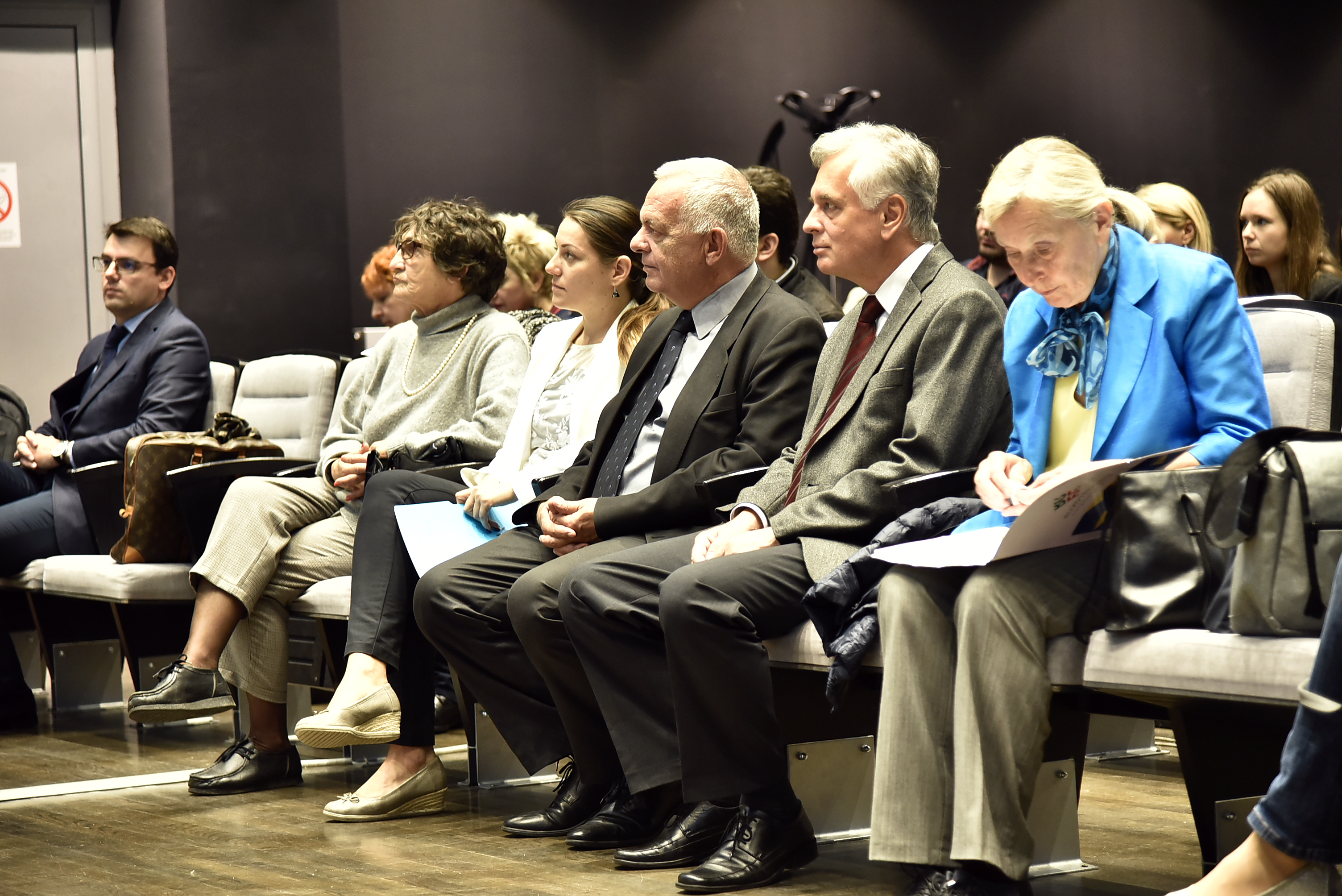
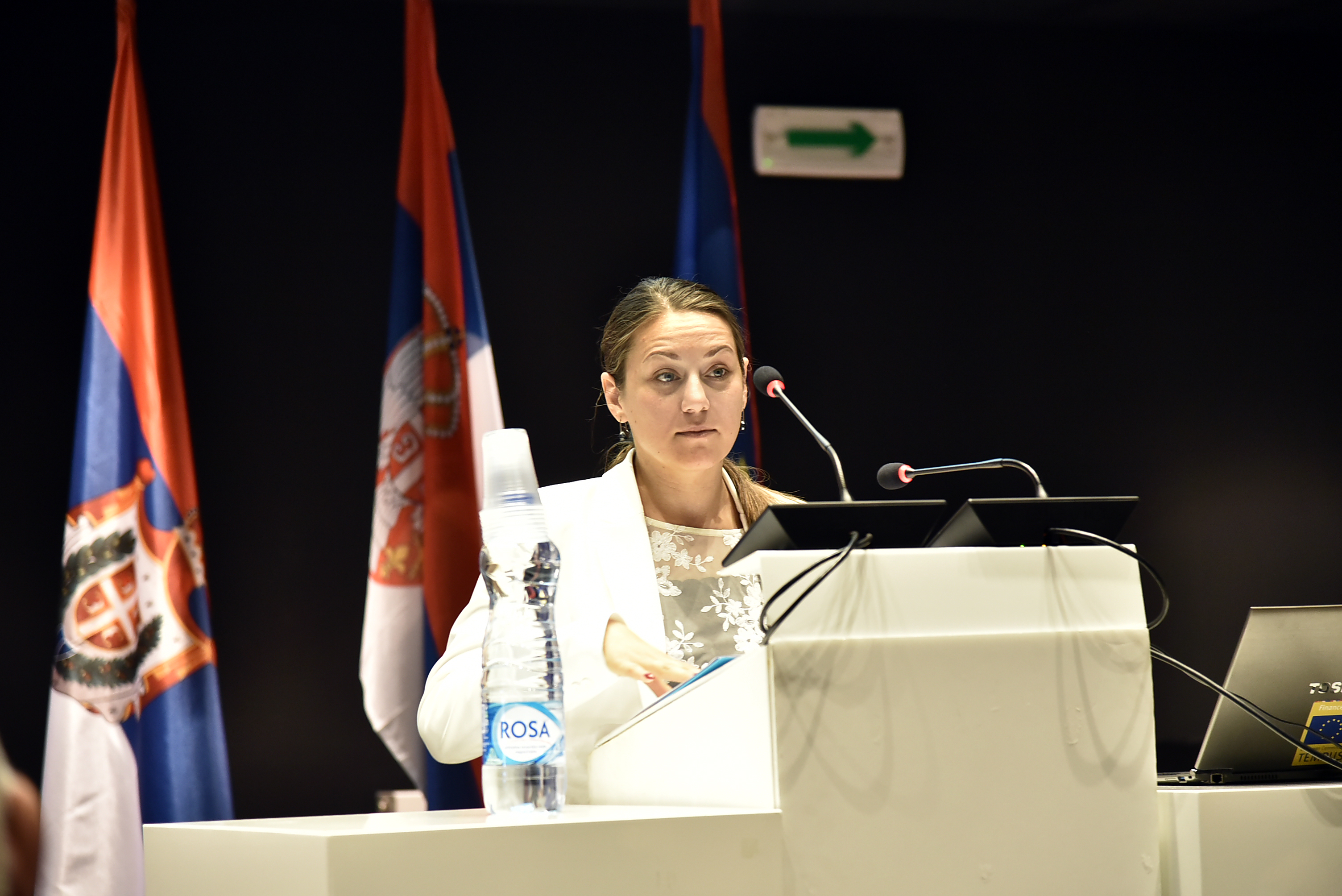
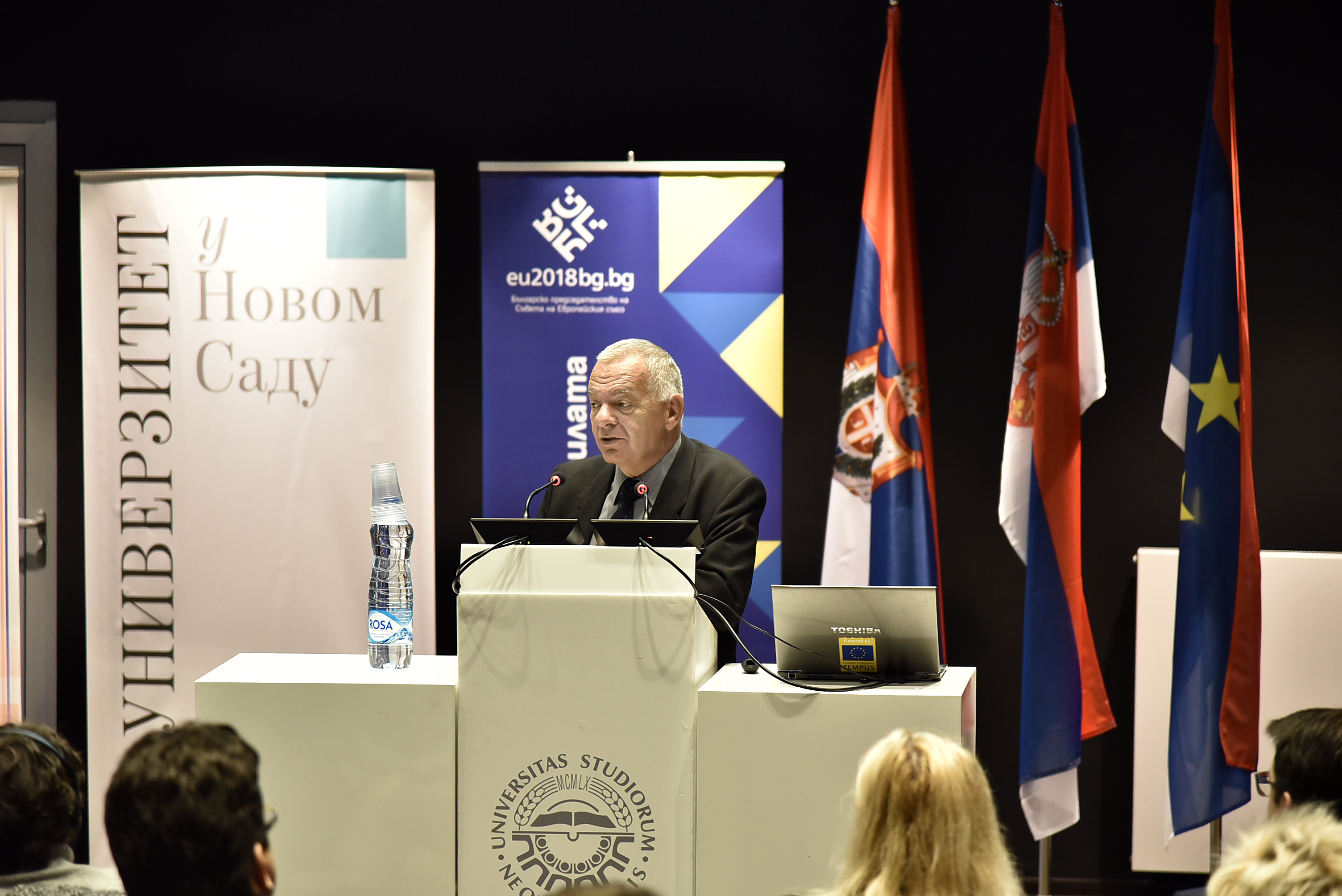
H. E. Radko Vlajkov, Ambassador of the Republic of Bulgaria in Belgrade, pointed out that during the Bulgarian Presidency of the Council of the European Union, it was achieved that the countries of the Western Balkans receive a positive atmosphere from a country that is both geographically and mentally close and similar to the Region of Western Balkan coutries. The ambassador emphasized the importance of young people as future leaders, politicians, diplomats and in general people who make important decisions for their community at the local, regional, national or international level. Particularly important in this context was the presentation of Maria Bulat, a local representative of the Regional Office for Youth Co-operation (RYCO) from Belgrade who pointed out that RYCO was founded on the reputation of the German-French Youth Office, which was founded in 1963 when the “Élysée Treaty” was signed.
Presenting the RYCO programme, Ms. Bulat emphasized: “The French and German governments are continuing to invest in efforts and resources for the work of their office, and thus show how important it is for young French and Germans to get to know each other, get together and learn about each other today, to maintain these good-neighborly and peaceful relations on stable feet, and when you look at it now, it makes up some of the main axes of the European Union, for that is primarily France and Germany and their close connection, we can say that this year, since 1963, in the sense of joining the people of France and Germany, and certainly the Office for Youth has contributed to this, as Mrs Merkel and Mr. Macron also attended the program of this Office. So, these are today’s leaders who lead Europe and lead these two countries, and we also want these young people from the Balkans who participate in the exchange programs that RYCO will support, to be tomorrow’s leaders, and in fact, get into their politics and their own affairs somewhere attitude towards young people and this programme.
“German Chancellor Angela Merkel gave a recommendation for the establishment of RYCO, on several occasions also Aleksandar Vucic, then Prime Minister of the Republic of Serbia, and Edi Rama, Prime Minister of the Republic of Albania spoke about this on bilateral meeting . The process of creating RYCO from idea to realization lasted for several years and gradually evolved and was confirmed at international annual summits (Berlin 2014., Vienna 2015., Paris 2016.)
At the Summit in Vienna in 2015, a joint declaration of RYCO was signed by six prime ministers of the Western Balkans (Serbia, Albania, Macedonia, Kosovo*, Montenegro and Bosnia and Herzegovina). The prime ministers of Croatia and Slovenia were also invited to sign this declaration, however, they made a political decision not to do so, but they said they were interested in monitoring the work of this office and seeing potential connections in a future period. Ms. Bulat added a message of encouragement: “RYCO doors are opened for joining primarily Croatia and Slovenia because we can not talk about the process of reconciliation in the Western Balkans without the participation of Croatia and in general deny the possibility for young people from Croatia to participate in exchange programs that are aimed at promote good neighborly relations.”
The conclusion that was announced by participants of the Conference is that the positive climate for the countries of the Western Balkans will continue as Sebastian Kurz, the Prime Minister of Austria, announced that, in addition to other measures, his country will continue to focus on the active neighborhood policy – integration of the Western Balkan countries and that Austria, in the occasion of announcing its six-month Presidency of the Council of the European Union, has set this as a priority.
………………………………..
Statements by H. E. Radko Vlaykov, Ambassador of the Republic of Bulgaria in Belgrade
On the concept of interconnecting people
“The roads are very important, because of the connection in terms of energy, infrastructure and goods transportation, for all people, however, without interconnecting people it is not possible to go forward together. We need to use those roads and energy pipes together. This is very important and this is something that we have set as a priority during our Presidency and we are very dedicated to young people and their abilities and skills for the future. The European Union has paid special attention to the Erasmus II program and this is very important for young people and I strongly believe that young people have the future, to continue in particular what the previous generations have begun. To continue all those positive examples, to be united, to live in peace and to achieve reconciliation wherever is necessary. “
On the Plovdiv-Novi Sad agreement
“We worked on the preparation of this agreement between Plovdiv and Novi Sad for about a year and I expect it will be signed shortly. There are many reasons that Plovdiv and Novi Sad become fraternal cities and act together. They are the other cities in size in their countries, Bulgaria and Serbia, have very good traditions in fairs, both cities will be the Capital of Culture of Europe, Plovdiv in 2019, and Novi Sad in 2021. I see that many similarities, here is the Danube, Plovdiv is a smaller, but typical river Marica. I also see that people are very similar and that they are proud of their city and that they love it and I’m sure that they can find something in common. Of course, it is very important that we cooperate and share ideas in different fields, and we have already discussed this, as well as working together on various European projects, to have a vision and projects that will help people in Novi Sad and Plovdiv. I am an optimist and I think that this cooperation will be very fruitful for the people of both sides, and in general for Bulgaria and Serbia. “